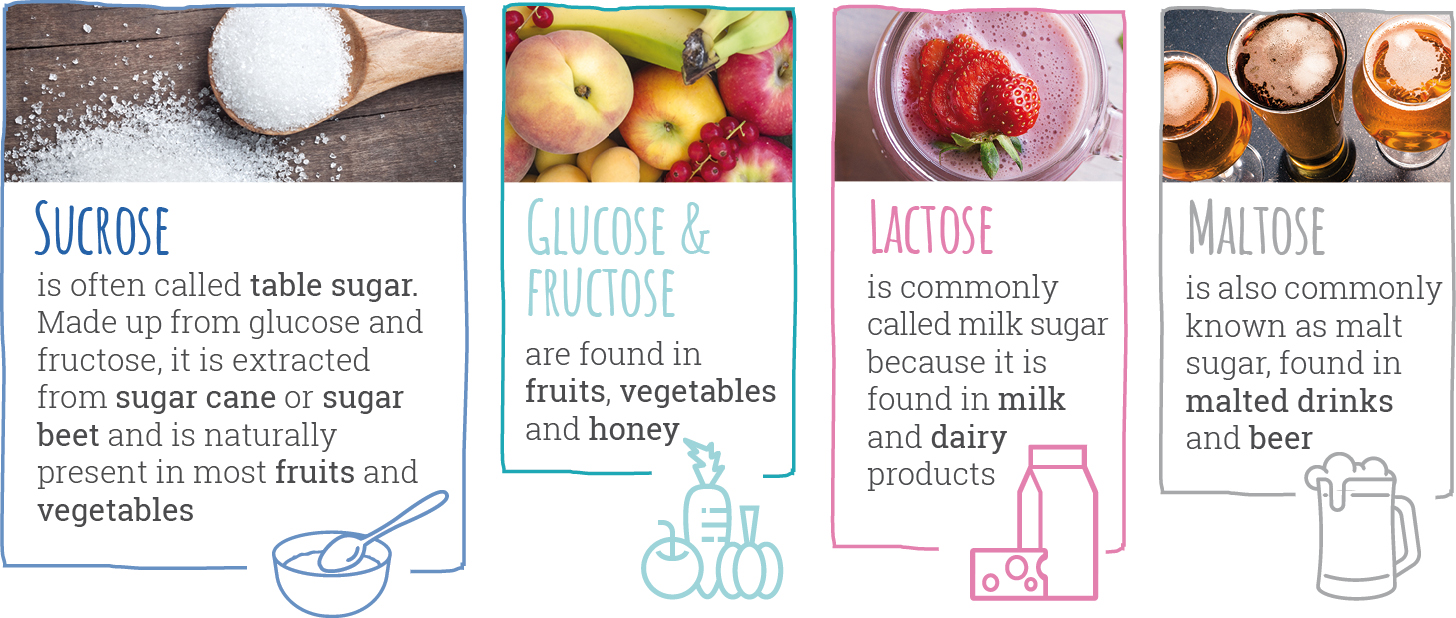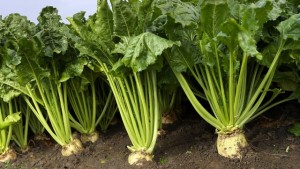WHAT IS SUGAR?
Sugar is a natural ingredient that has always been part of the human diet. Carbohydrates comprising sugars and starches are broken down in the body into glucose. Sugars are an important source of energy with glucose being the most important for the body. Our brain requires around 130 grams of glucose per day to keep functioning.
Some sugars are found naturally in foods (e.g. fruit, vegetables and milk) while others are used during processing and cooking – find out more on how sugars are used here.
The body does not distinguish between sugars used in food and drink manufacturing or in the home, and those found naturally in fruits and vegetables. For example, the sucrose in an apple is broken down in exactly the same way as the sucrose in in your sugar bowl. However, the rate of which sucrose is absorbed can vary depending on if the source is a solid or liquid food, for example in an apple or apple juice.
The most common kinds of sugar

Head to our how sugar is made page to discover where sugar comes from.
| SUGAR FACTS |
|---|
| Sugar is thought to have been first used over 5,000 years ago in the Polynesian Islands. |
| The body breaks down all sugars and starches to glucose. The brain requires around 130g of glucose each day to cover basic energy needs. |



